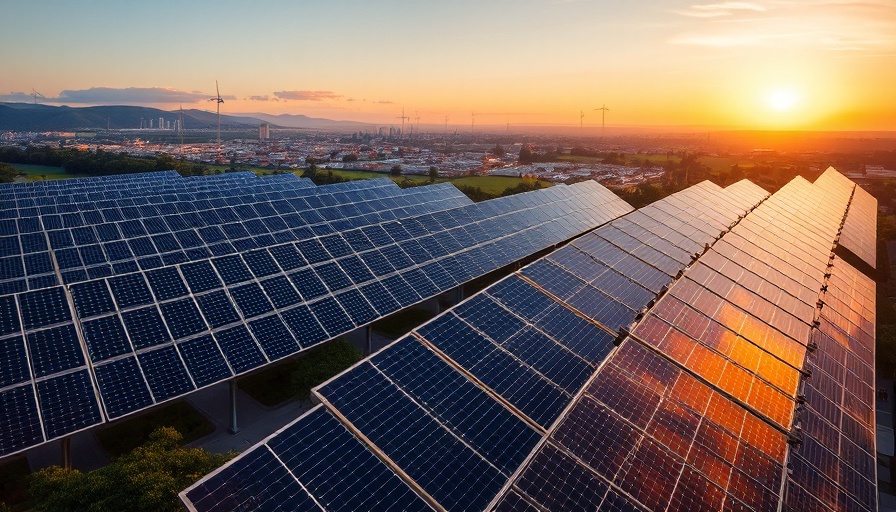
Sustainable Energy Solutions: A New Dawn for Senior Living
In an age where climate change mitigation and energy security take precedence, the partnership between Decentral Energy and Mowana Communities NPC showcases a progressive approach to renewable energy integration in retirement living. This collaboration not only highlights the critical need for sustainable energy systems in communities serving senior citizens but also opens the door for future developments across similar sectors.
Building Resilience in Retirement Communities
Decentral Energy's installation of solar photovoltaic panels, battery storage systems, and diesel generators at Mowana’s residences in KwaZulu-Natal marks a significant shift towards energy resilience. As Trevor Clowes, CEO of Mowana, aptly pointed out, this integrated solution is essential in safeguarding the comfort and security of residents, especially in the face of South Africa’s worsening power challenges driven by load shedding and the aging coal-fired power infrastructure of Eskom.
The Shift Towards Renewable Energy in Senior Living
The need for renewable solutions in retirement facilities is, however, not unique to South Africa. As highlighted by reports from the U.S., green retirement options are on the rise, driven by a desire for more sustainable living and energy independence. Facilities across various regions are opting for solar power, which not only aids in reducing monthly expenses for residents but also contributes greatly to the battle against carbon emissions. Such practices resonate with the increasing push towards a sustainable economy and the Just Energy Transition framework.
Challenges and Counterarguments
While the promise of renewable energy in retirement communities is bright, skepticism still surrounds its viability. Critics argue that the high initial capital required for such green initiatives may limit access for many facilities, creating a disparity in energy access among senior communities. This view echoes debates on energy poverty in developing regions, where many still heavily depend on traditional energy sources that contribute to greenhouse gas emissions. Where can we find balance to ensure that these projects do not result in a widening energy gap?
Future Insights: Bridging Sustainability and Community Care
As Decentral Energy and Mowana Communities bring renewable energy solutions to the forefront, there is an opportunity to reassess how such partnerships can be expanded to other areas, thus ensuring the sustainability of vital community services. Investment in renewable energy not just aids in reducing dependency on coal-fired sources, but it can also revolutionize how eldercare facilities operate, enhancing both environmental impact and resident satisfaction.
Making Informed Decisions for Sustainable Living
Professionals in community planning and public policy must consider integrating renewable energy initiatives with broader sustainability practices, such as waste management, water conservation, and health-promoting activities. As seniors increasingly seek environments that reflect their values, understanding how these systems work can empower leaders to craft policies that foster sustainability in every aspect of eldercare.
The Role of the Community in the Energy Transition
The success of initiatives like those undertaken by Mowana relies on community involvement and awareness. As local governments and organizations collaborate, there's a need to foster a sense of ownership among residents, encouraging them to participate in conservation and renewable energy practices. Workshops and training sessions on energy efficiency and resource management could prove invaluable in spearheading this change.
Lastly, what questions remain unanswered regarding energy equity for senior communities in the face of renewables? Will future investments in green technologies adequately provide for elders while promoting social equity?
Conclusion: A Call to Action
The Mowana-Decentral Energy partnership is not just a project; it is a beacon of hope pointing towards a sustainable future for senior living communities. For broader adaptation and implementation, stakeholders must take heed of these initiatives and demand investments in cleaner energy pathways that enhance the resilience and well-being of all communities. The time to act is now, and innovative, renewable energy solutions can propel us into a greener tomorrow.
 Add Row
Add Row  Add
Add 




Write A Comment